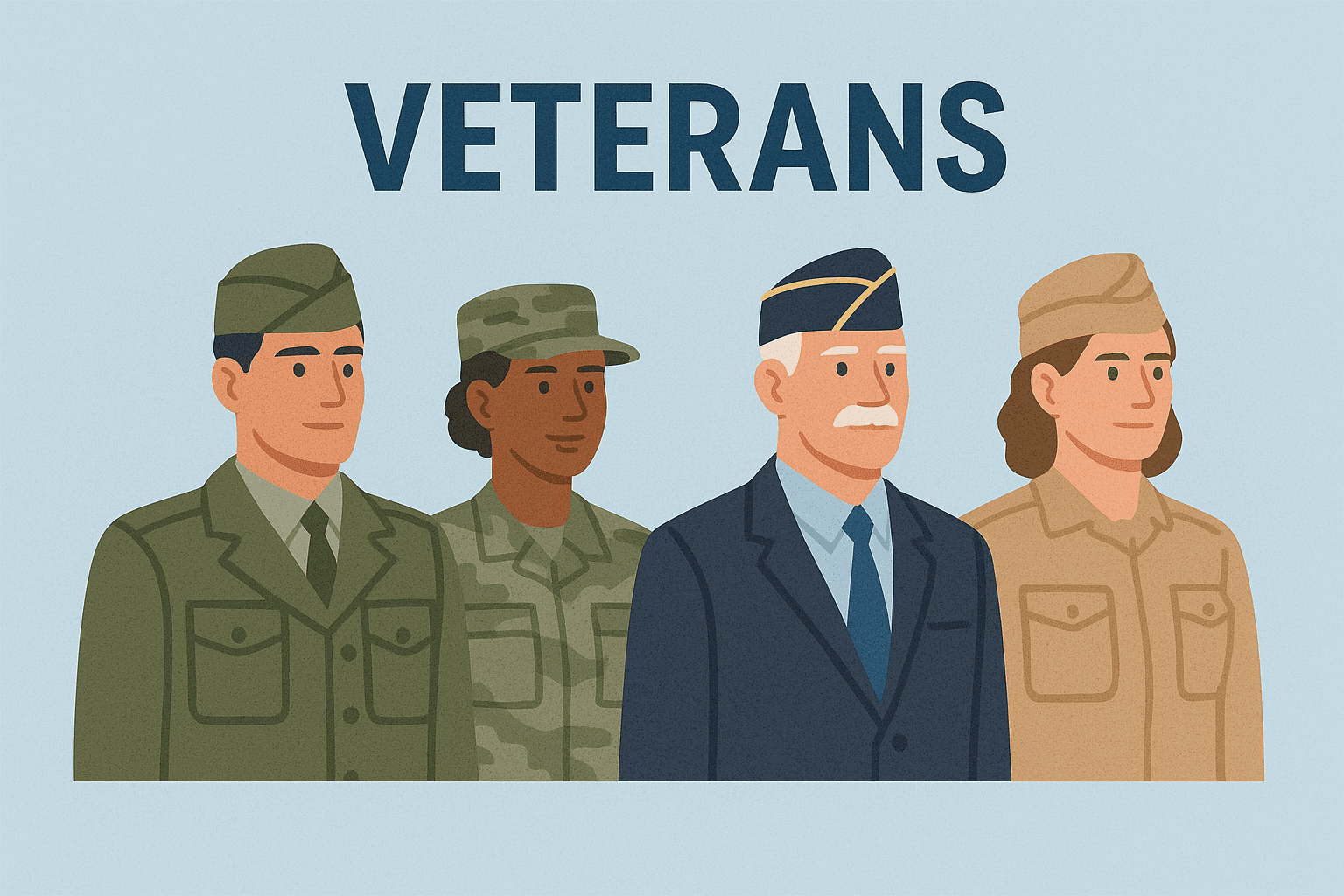Veterans are individuals who have completed active duty, military service, or honorable discharge from a nation’s armed forces, including branches such as the Army, Navy, Air Force, Marines, Coast Guard, or Space Force (in the U.S. context). Veterans may have served during peacetime or wartime and often possess unique physical, psychological, and social experiences shaped by their service.
In the United States and many other countries, the term “veteran” encompasses both combat and non-combat personnel, with subcategories including war veterans, disabled veterans, retired military personnel, and veterans of foreign wars. Veterans are distinct from active duty members and reservists, though many retain access to benefits, pensions, healthcare services (e.g., VA in the U.S.), and special legal protections due to their military service.
The veteran identity carries deep historical, cultural, and political significance. Veterans often benefit from public honors, government assistance, mental health care, employment programs, and educational funding (e.g., GI Bill). Issues such as PTSD, reintegration, homelessness, and veteran suicide are key areas of focus within veteran advocacy and policy development.
